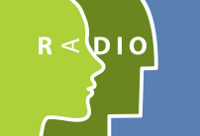RADIO Press Release May 2015
New European project develops a robotic smart home to offer Unobtrusive, efficient, reliable and modular solutions for independent ageing*.
Demographic and epidemiologic transitions have brought a new health care paradigm with the presence of both a, growing elderly population and more people suffering from chronic diseases. Life expectancy is increasing as well as the need for long-term care. Institutional care for the aged population faces economical struggles with consequent quality problems. To facilitate solutions for prolonging independent living, the European Union has awarded funding tofunds an interdisciplinary research and innovation project called “RADIO”. A European consortium, led by the National Center for Scientific Research “Demokritos” (GR), Institute of Informatics and Telecommunication, will develop over the next three years a robotic smart home for unobtrusive, efficient and modular solutions for independent ageing.
The RADIO consortium will work towards realising the overall Europe 2020 Health Strategy, which is to turn the EU into a smart, sustainable and inclusive economy promoting growth for all – one prerequisite of which is limiting human illness and reducing sources of danger to physical and mental health.
ICT technologies bring new opportunities for the ageing population in Europe
Although demographic and epidemiologic transitions as well as economic struggles impose societal challenges, at the same time technical advancements in ICT, including robotics, bring new opportunities for the ageing population of Europe, the healthcare systems, as well as the European companies providing relevant technology and services at the global scale.
RADIO strives for innovation across action’s four main dimensions: User acceptance, Integrated and power-aware data collection – transmission – processing, User interfaces and Architecture., Work carried out in the project will pave the way for wider deployment of technology solutions for active and healthy ageing, for integration of robots and smart home sensors in the Internet of Things and for larger penetration of technology- – based solutions. In a wide-area ecosystem of RADIO deployments, different societal needs and health problems will be addressed by different configurations of the key enabling technologies.
Dr Vangelis Karkaletsis, Director of Research at NCSR “Demokritos” and RADIO project coordinator explains: “The RADIO project has mobilized a consortium of top research and higher education organizations, dynamic and vibrant SMEs, and esteemed health institutions to work together towards the next generation of high-tech healthcare.”
RADIO develops an integrated smart home/assistant robot system
The consortium is pursuing a novel approach to acceptance and unobtrusiveness: a system where sensing equipment is not discrete but an obvious and accepted part of the user’s daily life. By using the integrated smart home/assistant robot system as the sensing equipment for health monitoring, we divert the users’ attention to from the functionality of the sensors rather than from the sensors themselves. In this manner, sensors do not need to be discrete and distant or masked and cumbersome to install; they do however need to be perceived as a natural component of the smart home/assistant robot functionalities.
RADIO was launched on 29 April 2015 at NCSR “Demokritos” premises, Athens.
RADIO partners met on the 29/30 April in Athens for the Kick-Off Meeting.
About RADIO
RADIO is a project within the EU’s Horizon 2020 framework program, answering a call for technical solutions to promote independent living and to strengthen the competitiveness of Europe’s economy. Together with NCSR “Demokritos”, the following institutions and companies also participate in the project: Technological Educational Institute of Western Greece (GR), Ruhr Univeristaet Bochum (DE), Robotnik Automation SLL (ES), Sensing & Control Systems S.L. (ES), AVN Innovative Technology Solutions LtD (CY), Fondazione Santa Lucia (IT), Fundació Hospital Asil de Granollers (ES), and Frontida Zois (GR).
*Please find a PDF version of this press release in [English], [Greek], [Spanish], [Catalan].
*Update 19 May: Please find a similar press release in German on the Ruhr-Universitaet Bochum News Portal.
